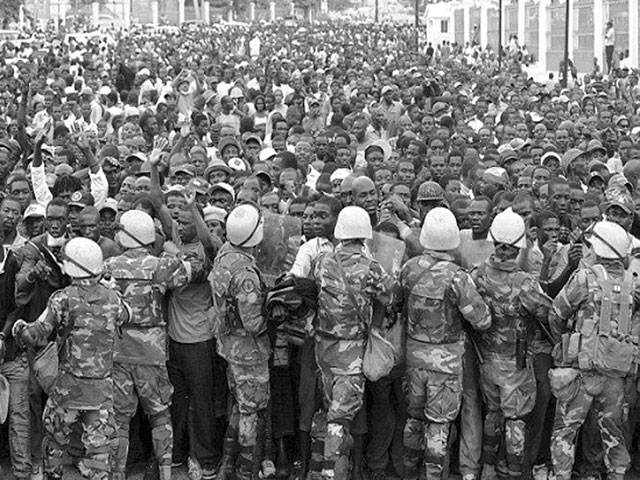We need to use the United Nations Security Council and believe that preserving law and order in today’s complex and turbulent world is one of the few ways to keep international relations from sliding into chaos. The law is still the law, and we must follow it whether we like it or not.
–Vladimir Putin
UN peacekeeping forces failed in avoiding
the infamous Rwandan genocide
After the end of World War II when the gruesome effects of war devastated most of the world, the victors put their heads together to establish an organisation to secure global peace and world order. For this purpose United Nations (UN) was founded in October 24, 1945. It is currently made up of 193 Member States. The mission and work of the United Nations are guided by the purposes and principles contained in its founding Charter. While the main aim behind founding the UN was to save the successive generations from the scourge of wars, with the passage of time the global body extended its own obligations and responses.
The UN also provides a forum for its members to express their views in the General Assembly, the Security Council, the Economic and Social Council, and other bodies and committees. By enabling dialogue between its members, and by hosting negotiations, the Organization has become a mechanism for governments to find areas of agreement and solve problems together.
However, it is also a bitter fact that the body has failed in maintaining its primary goal i.e., saving the future generations from the harms and miseries of wars and conflicts on people’s lives. Conflicts in Afghanistan, Syria, Yemen and many African countries are testimony to the failures of the UN in fulfilling its primary responsibility –protection of future generations from the scourge of wars.






